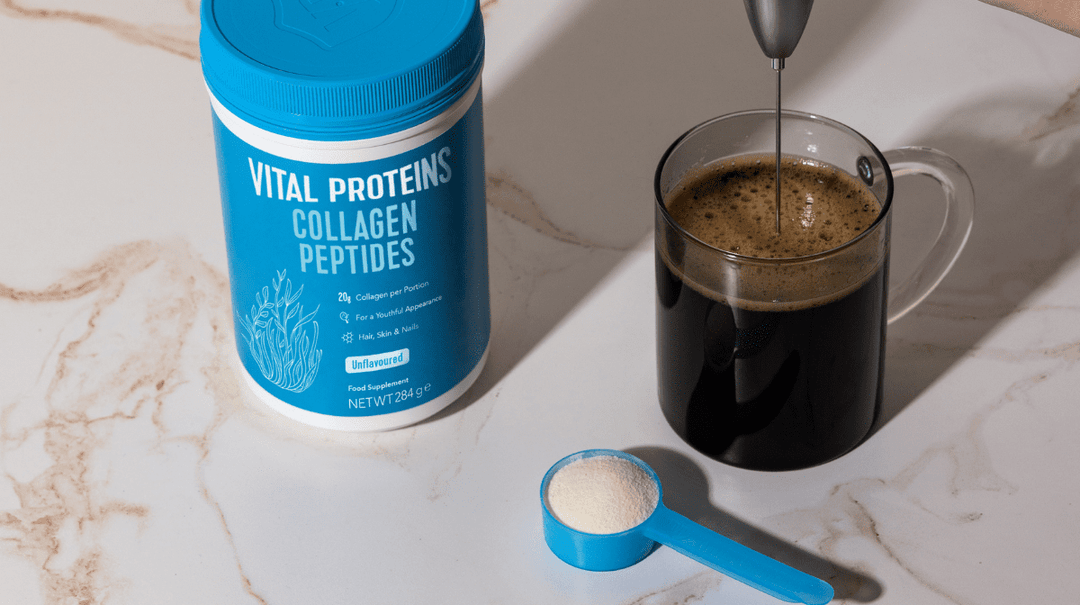Exploring Alflorex Probiotics: A Comprehensive Guide to Digestive Health
In the quest for optimal digestive health, probiotics have emerged as a popular choice for those seeking natural solutions to improve gut function. Among the various probiotic options available, Alflorex Probiotics stand out for their unique formulation and potential benefits. This blog post delves into what makes Alflorex Probiotics special, their benefits, and how they can support your digestive well-being.
What Are Alflorex Probiotics?
Alflorex is a brand of probiotics known for its distinctive approach to gut health. Unlike many other probiotics, each Alflorex capsule features a specific strain of bacteria that has been clinically studied for its effectiveness. The key ingredient in Alflorex is the Bifidobacterium longum 35624 strain.

The Unique Strain: Bifidobacterium longum 35624
- Proprietary Strain: Bifidobacterium longum 35624 is a proprietary strain that is not commonly found in other probiotic supplements.
- Scientific Research: This strain has been the subject of numerous clinical studies, highlighting its potential benefits for gut health.
Benefits of Alflorex Probiotics
Supports Digestive Health
- Balancing Gut Flora: Alflorex helps in maintaining a healthy balance of gut bacteria, which is essential for proper digestion.
- Reducing Bloating and Discomfort: Regular use may help alleviate common digestive issues such as bloating, gas, and abdominal discomfort.
Enhances Immune Function
- Immune System Support: A healthy gut contributes to a robust immune system. Alflorex can help strengthen the body's natural defenses.
- Preventive Benefits: By supporting gut health, Alflorex may also contribute to overall well-being and prevent some gastrointestinal infections.
Clinically Proven Effectiveness
- Research Backed: Studies have shown that Bifidobacterium longum 35624 can improve gut health and manage symptoms related to irritable bowel syndrome (IBS).
- Validated Results: Clinical trials have demonstrated the effectiveness of Alflorex in reducing IBS symptoms and improving quality of life for those affected.

How to Incorporate Alflorex Probiotics into Your Routine
Recommended Dosage
- Daily Intake: The recommended dosage is typically one capsule per day. It is best to follow the instructions on the packaging or consult with a healthcare professional for personalised advice.
Consistency is Key
- Regular Use: For optimal results, it is important to take Alflorex consistently as part of your daily routine.
- Long-Term Benefits: Probiotics like Alflorex may take some time to show noticeable benefits, so patience and consistency are crucial.
Complementing Your Diet
- Balanced Diet: While Alflorex supports gut health, maintaining a balanced diet rich in fibre, fruits, and vegetables can further enhance digestive function.
- Hydration: Staying well-hydrated also supports overall gut health and the effectiveness of probiotics.
Potential Side Effects and Considerations
Mild Side Effects
- Initial Discomfort: Some individuals may experience mild gastrointestinal discomfort, such as gas or bloating, when starting a new probiotic regimen. This is often temporary and should subside as your body adjusts.
Consult with a Healthcare Provider
- Pre-existing Conditions: If you have any pre-existing health conditions or are taking other medications, it is advisable to consult with a healthcare provider before starting Alflorex.
- Personalised Advice: A healthcare professional can provide personalised recommendations based on your specific health needs.
Alflorex vs. Other Probiotics
Unique Formulation
- Specific Strain: Unlike many other probiotics that contain multiple strains, Alflorex focuses on the specific Bifidobacterium longum 35624 strain, which is supported by extensive research.
Evidence-Based Benefits
- Proven Results: The effectiveness of Alflorex is backed by clinical studies, making it a reliable choice for those seeking evidence-based probiotic solutions.
What Are Food Supplements?
Food supplements, also known as dietary supplements, are products that provide additional nutrients that may not be consumed in sufficient quantities through diet alone. They come in various forms, including pills, capsules, powders, and liquids. Common types of supplements include:
- Vitamins (e.g., vitamin D, vitamin C)
- Minerals (e.g., calcium, magnesium, iron)
- Herbs and Botanicals (e.g., echinacea, ginseng)
- Amino Acids
- Enzymes
- Probiotics
These supplements are designed to enhance your overall nutrient intake and support various aspects of health, from boosting the immune system to improving energy levels and digestion.
Benefits of Food Supplements
- Filling Nutrient Gaps:
- Even with a healthy diet, some people may fall short of certain nutrients. Supplements can help bridge these gaps, ensuring the body gets the vitamins and minerals it needs to function optimally.
- Supporting Specific Health Conditions:
- Some individuals may have conditions that require higher intakes of specific nutrients. For example, people with anaemia may benefit from iron supplements, while those with osteoporosis may require additional calcium and vitamin D.
- Boosting Immunity:
- Supplements like vitamin C, zinc, and probiotics are popular for their role in supporting the immune system. Especially during cold and flu season, these can be helpful for maintaining a strong defence against illness.
- Enhancing Energy Levels:
- B vitamins, iron, and magnesium are often used to support energy production. These nutrients are vital for converting food into energy and maintaining healthy metabolic functions.
- Improving Bone Health:
- Calcium, vitamin D, and magnesium are essential for bone health. Supplements can be particularly beneficial for older adults or individuals at risk of osteoporosis.
- Supporting Mental Health:
- Omega-3 fatty acids, B vitamins, and magnesium are linked to brain function and mental wellbeing. Supplements can be helpful for managing mood, reducing anxiety, and supporting cognitive function.
Common Food Supplements and Their Uses
- Multivitamins: These are a combination of essential vitamins and minerals in one convenient tablet or capsule. Multivitamins are often used to ensure general well-being and cover the basic nutritional needs of an individual.
- Vitamin D: Known as the "sunshine vitamin," vitamin D is essential for bone health, immune function, and mood regulation. Many people, especially in colder climates, may not get enough sunlight exposure, making vitamin D supplements necessary.
- Omega-3 Fatty Acids: Found in fish oil or flaxseed oil supplements, omega-3s are crucial for heart health, brain function, and reducing inflammation in the body.
- Probiotics: These supplements contain beneficial bacteria that help support gut health. They are commonly used to aid digestion, reduce bloating, and support the immune system.
- Magnesium: This mineral is vital for muscle function, nerve function, and energy production. Magnesium supplements are often used to reduce cramps, improve sleep, and support overall relaxation.
- Iron: Iron is necessary for the production of haemoglobin, which carries oxygen in the blood. Iron supplements are often recommended for people with anemia or low energy levels.
Support Digestive Health
Supporting digestive health involves maintaining a balanced and varied diet throughout, staying hydrated, and incorporating certain lifestyle habits. Here are some tips for promoting good digestive health:
- Eat a high-fibre diet: Fibre helps to keep the digestive system functioning properly by promoting regular bowel movements. Whole grains, fruits, vegetables, and legumes are excellent sources of fibre.
- Stay hydrated: Drinking plenty of water is crucial for digestion. Water helps break down food and absorb nutrients, while also preventing constipation.
- Incorporate probiotics and prebiotics: Probiotics (found in yogurt, kefir, and fermented foods) help balance the gut’s beneficial bacteria, while prebiotics (in foods like garlic, onions, and bananas) fuel the growth of these bacteria.
- Chew food thoroughly: Properly chewing food aids digestion by breaking down food into smaller pieces, making it easier for the stomach and intestines to process.
- Manage stress: Stress can negatively impact the digestive system, causing issues such as indigestion or irritable bowel syndrome (IBS). Relaxation techniques, such as meditation, yoga, or deep breathing exercises, can be beneficial.
- Regular physical activity: Exercise helps stimulate the muscles in the digestive tract, promoting more efficient digestion and reducing the risk of constipation.
- Limit processed foods and sugars: High amounts of processed foods and sugars can disrupt the balance of gut bacteria and contribute to digestive issues.
- Eat at regular intervals: Consistent meal times help regulate digestive function, allowing the body to better anticipate food intake and process it efficiently.
Alflorex Probiotics offer a promising solution for those looking to enhance their digestive health with a more scientifically studied and validated probiotic strain. By supporting gut health and overall well-being, Alflorex can play a valuable role in your health regimen. If you’re considering incorporating Alflorex into your routine, remember to consult with a healthcare provider for personalised advice and enjoy the potential benefits of improved digestive function.
FAQs
What makes Alflorex different from other probiotics?
Alflorex features the specific Bifidobacterium longum 35624 strain, which is supported by extensive clinical research, distinguishing it from other probiotics.
How long does it take to see results with Alflorex?
Results can vary, but many individuals may start to notice improvements within a few weeks of consistent use.
Can Alflorex help with irritable bowel syndrome (IBS)?
Yes, clinical studies have shown that taking Alflorex can be effective in managing IBS symptoms and improving quality of life.
Are there any side effects associated with Alflorex?
Some individuals may experience mild gastrointestinal discomfort when starting Alflorex, but this is usually temporary.
How should I store Alflorex probiotics?
Alflorex should also need to be refrigerated or stored in a cool, dry place to maintain its potency and effectiveness. Follow storage instructions on the packaging for best results.


















